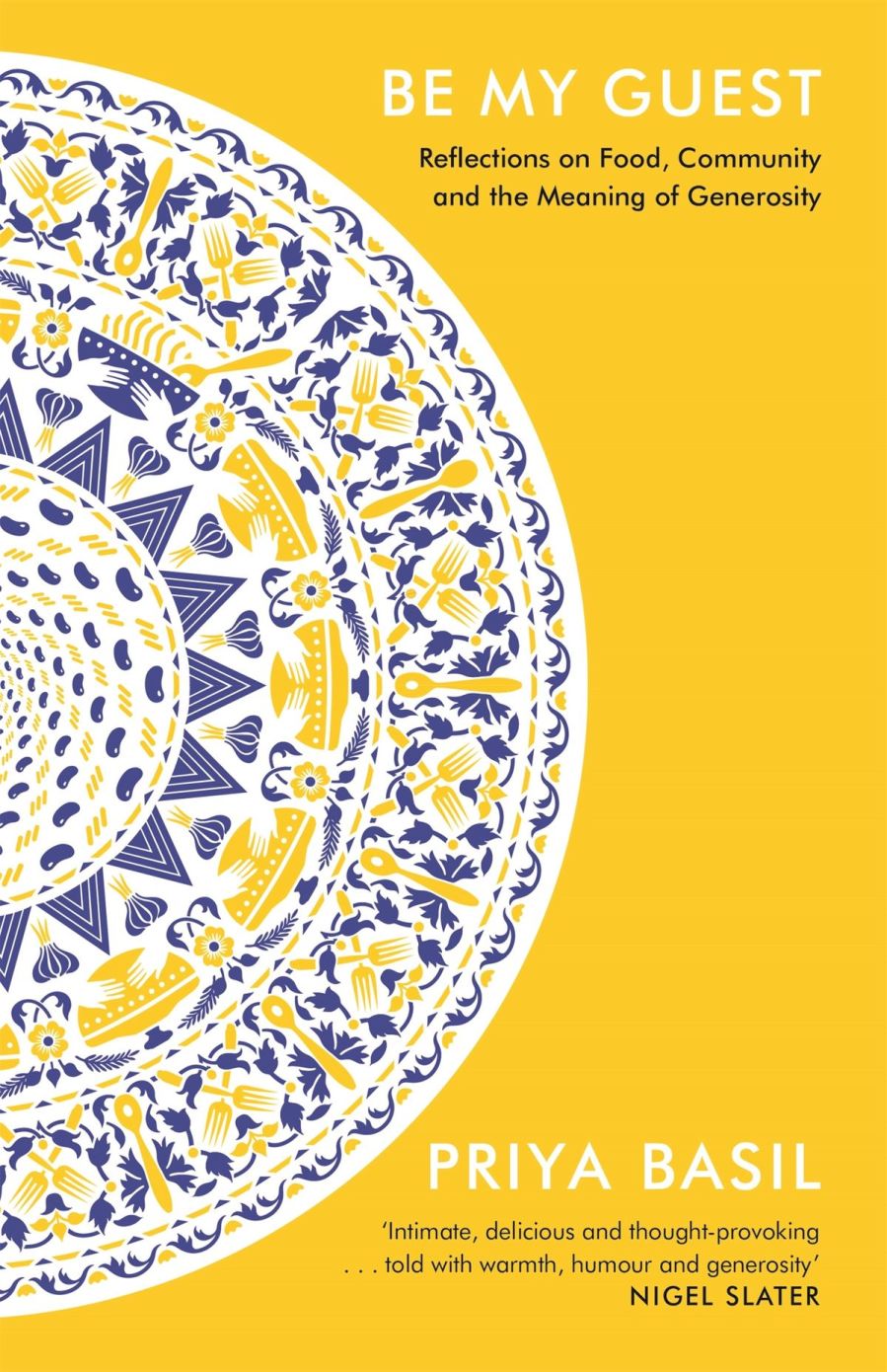
BE MY GUEST
Priya Basil (Canongate, £12.99)
With Christmas comes the problem of hosting, of welcoming guests into your home. Or perhaps you are one of these guests, lucky enough to be hosted for a meal, or a night, or more. You might be both on a single day, as Christmas is the season when we wish to feed and to feast, to give and to receive, and to see every family member, friend, colleague and vague acquaintance over one 12-day period.
The title of Priya Basil’s partly autobiographical essay on the subject might focus on the receiving part of this universal transaction, but her story investigates the role of the host with the same rigour.
We all begin as guests, she points out, but it is expected that we will return the favour. “Maybe reaching adulthood really means learning to be more host than guest: to care more than, or at least as much as, to be taken care of.”
Basil grew up hungry, not poor or in need of a good meal, but always wanting more of her family’s delicious food. Her grandmother is a fantastic cook but a stern host. Basil envies the food her mother cooks for others, wanting it all for herself.
She moves quickly from the personal to the political. She observes that she will always be a guest in the sense of being an outsider, as a Brit born to an Indian Sikh family who grew up in Kenya, and a woman with brown skin who now lives in Berlin and holds German citizenship. She was part of the Germany that mobilised to welcome more than 800,000 Syrian refugees, but this also revealed another side to her adopted home - the uglier side that didn’t welcome guests of this sort, withdrew their hosting responsibilities, and much worse.
To investigate the eternal illusion of the “free lunch”, Basil seeks out a Sikh temple in Berlin to take part in its langar, a post-prayer meal the temple offers “unconditionally” to anyone who wants it. Here she notes the many conditions of the so-called unconditional hospitality. Would her childhood temple in Kenya really have fed anyone, she wonders, given there were guards at the gates and she’d never seen a black person inside? She likens our territoriality over food to our desire to categorise and close down identity. “The history of food is the history of globalisation. Every ingredient, however genuinely local it might seem, has behind it a trail of travel and transformation. Still we can’t help but cling to a dream of original provenance.”
Basil cleverly manages to pair our greatest love - food - with our greatest fear - the other. Her writing is serious and invigorating. If you fear an invasion of your home this Christmas, or are wondering how to be the best guest elsewhere, line your stomach with Be My Guest first.